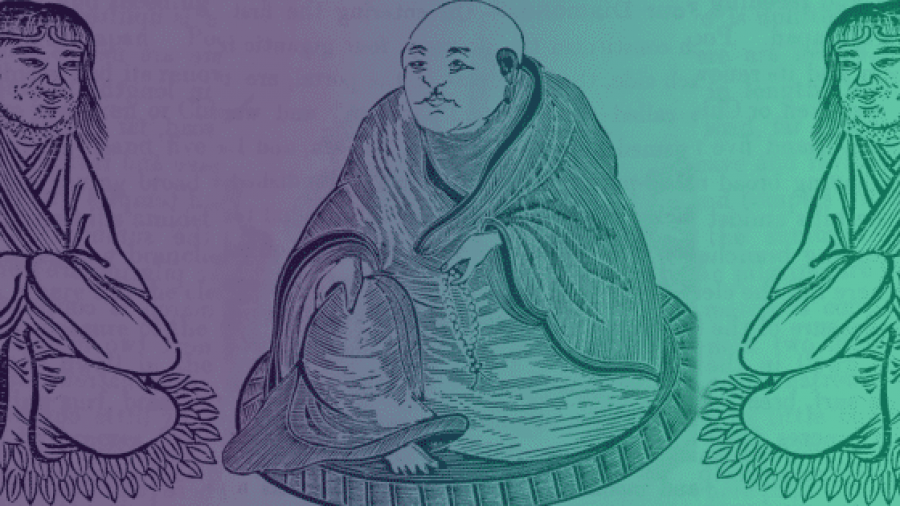you must learn to give a fuck and not give a fuck at the same time.
— Jordan Bates (@_jordan_bates) August 10, 2015
A while back, I whimsically typed the above tweet and hurtled it out into the twittersphere for whomever’s wandering eyes might happen upon it.
The tweet was basically a passing thought, a random splash from my ceaseless stream of consciousness.
But I continued to reflect upon it. Masticated it. Digested it.
And I came to see it as a particularly concise, memorable summary of many of the transformative perspectives I’ve gained through studying Zen and Taoism.
Not Giving a Fuck
On one hand, Zen and Taoism are often popularly summarized as Philosophies of Giving Zero Fucks.
No joke: There is actually a great Taoism website called HowToNotGiveAFuck.com.
And one time on the Internet I stumbled upon this quote, which is supposedly from the philosopher and countercultural hero, Robert Anton Wilson:
“After years of vehement and passionate study of the ideograms of the Tao Te Ching, I think I have summarized it all into a couple of words . . .
Fuck it.
And if you can’t fuck it, ignore it. It’ll go away.”
Indeed, Taoism (and Zen, its close cousin) encourage us to relinquish expectation, desire, preferences, and attachments. The vast majority of people in the world have endless expectations, desires, preferences, and attachments, but Taoism and Zen are like, “Nah, you should let go of all of that shit. It’s only going to make you suffer a shit-ton.”
The Taoist sage, as illustrated by the Tao Te Ching and other Taoists texts, is something of a feather on a breeze, a bobber atop a wave, drifting along in whatever direction the currents may flow, eternally content with whatever comes because (s)he does not give enough of a fuck to bother with preferring one thing over another. All things and all experiences are viewed as necessary, complete, sufficient, sacred even.

Giving a Fuck
And yet, I’ve always found it slightly problematic to use “not giving a fuck” as a shorthand for the Zen or Taoist approach to life.
I think “not giving a fuck” can too easily be associated with a reckless brand of nihilism that values nothing whatsoever and wouldn’t bat an eyelash at malicious violence.
It might be true that a realized Taoist or Zen Buddhist would see acts of violence as necessary expressions of the Tao, or the Buddha-nature, accepting them with equanimity.
However, based on everything I’ve read, the realized Taoist or Zen Buddhist would not partake of malicious violence, would not deliberately inflict suffering on another being.
Both Taoism and Zen emphasize that gaining true insight into the Tao or the Buddha-nature results in compassion toward other sentient beings.
Once one realizes that all beings are “cut from the same cloth,” involved in the same predicament-opportunity, experiencing suffering, one gains a deep empathy for the condition of all sentient life. One does not wish to inflict harm upon any living being.
From the Taoist or Zen perspective, the person who “gives zero fucks” and is prone to violence is still consumed by delusion, unable to see the essential sameness of themselves and the being they wish to injure. This person has not recognized that hatred, anger, and ill will poison the vessel which carries them as much as anyone toward which they are directed.
Combining the Two
And so the realized Taoist or Zen Buddhist does give a fuck. And also doesn’t give a fuck.
The sage seems to care on some level about the well-being of all sentient beings, having lost the capacity to maliciously harm any life-form. And yet the sage also, supposedly, has no preferences, attachments, desires or expectations.
These two items seem almost self-contradictory, paradoxical. Possessing compassion would seem to be the same as having a preference, or desire, for good will, peace, non-violence, right? And aren’t those Zen Buddhists and Taoists supposed to, like, have no preferences and desires?!
I see it like this: The sage has realized a state of compassion, so even if the sage gives zero fucks about particular actions or outcomes, his/her being will simply never feel compelled to inflict harm. Kindness, patience, and empathy will spill forth as organically as water cascading over Niagara Falls.
This state of being doesn’t seem to entail that the sage actually prefers or desires to act purely out of compassion. It is simply what happens — a result of one’s true realization. And when others, consumed by delusion, act violently, it is also simply what happens. The sage accepts either outcome as nothing more than a necessary expression of the Tao or Buddha-nature. The sage’s perspective seems uncannily similar to the perspective of the poet Rainer Maria Rilke:
“Let life happen to you. Believe me: life is in the right, always.”
The sage possesses an unflappable trust that “life is in the right, always,” but also feels compassion for all beings caught up in this silly, suffering-filled labyrinth of existence.
Thus the sage’s actions are likely to appear benevolent and kind, as if the sage gives quite a few fucks about other people. In some sense, this is true, but it’s also the sage’s natural state, his/her purest self-expression, so it doesn’t actually require any fucks to maintain. It just is. It is not the result of preferences, desires, expectations, or attachments, all of which have been released in the process of self-realization.
And in this way, the sage, paradoxically, gives a fuck and does not give a fuck at the same time.
This state of being is, for me, a worthy ideal toward which to aspire, though I don’t really treat it as a realistic goal to be realized. My image of the fully liberated Zen or Taoist sage is more of a grounding/guiding beacon, a calming imaginary friend, a muse — a somewhat romanticized, fantastical anti-hero who desires nothing beyond himself yet lives in a state of effortless, organic compassion, joy, and appreciation.
I channel the spontaneous and peaceful spirit of the sage whenever possible, aiming to have few preferences and expectations, to accept whatever comes my way while living from a center of compassion and gratitude. I fail at this frequently, but it’s cool. After all, I’m not an enlightened master; I’m a fallible human, and I try to accept that too.
———
If you’d like to dig deeper into these themes, take my new course on finding tranquility and letting go of fear and anxiety.
This article was first published on HighExistence.com.
About Jordan Bates
Jordan Bates is a Lover of God, healer, mentor of leaders, writer, and music maker. The best way to keep up with his work is to join nearly 7,000 people who read his Substack newsletter.




